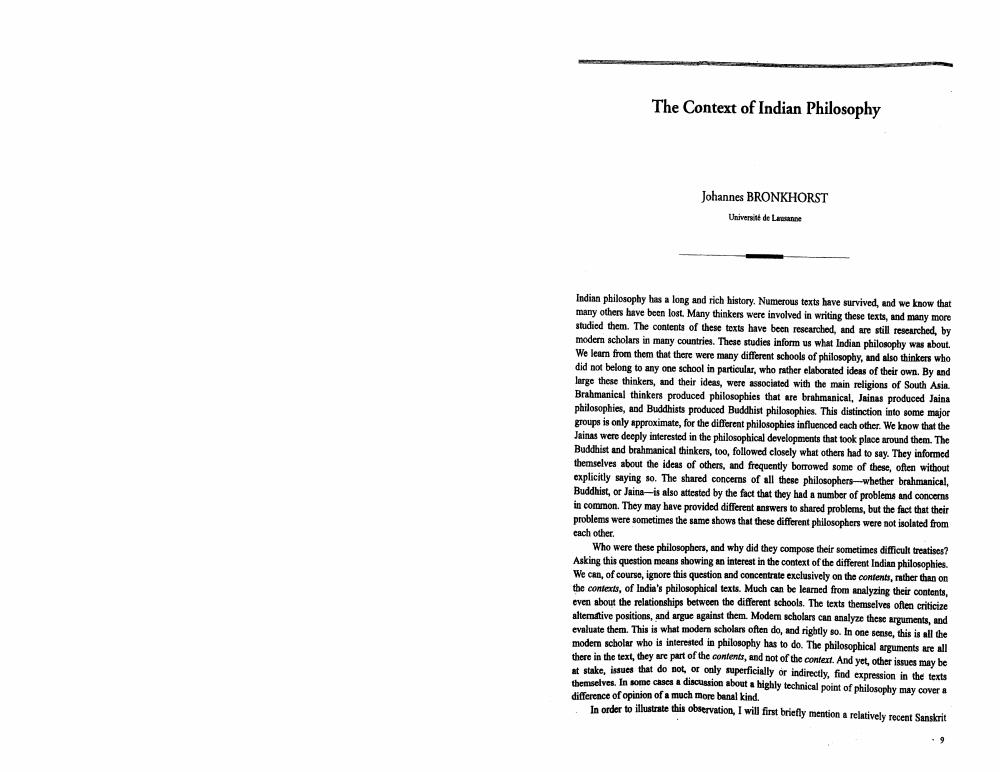Book Title: Context Of Indian Philosophy Author(s): Johannes Bronkhorst Publisher: Johannes Bronkhorst View full book textPage 1
________________ The Context of Indian Philosophy Johannes BRONKHORST Université de Lausanne Indian philosophy has a long and rich history. Numerous texts have survived, and we know that many others have been lost. Many thinkers were involved in writing these texts, and many more studied them. The contents of these texts have been researched, and are still researched by modern scholars in many countries. These studies inform us what Indian philosophy was about. We learn from them that there were many different schools of philosophy, and also thinkers who did not belong to any one school in particular, who rather elaborated ideas of their own. By and large these thinkers, and their ideas, were associated with the main religions of South Asia. Brahmanical thinkers produced philosophics that are brahmanical, Jainas produced Jaina philosophies, and Buddhists produced Buddhist philosophies. This distinction into some major groups is only approximate, for the different philosophies influenced each other. We know that the Jainas were deeply interested in the philosophical developments that took place around them. The Buddhist and brahmanical thinkers, too, followed closely what others had to say. They informed themselves about the ideas of others, and frequently borrowed some of these, often without explicitly saying so. The shared concerns of all these philosophers-whether brahmanical, Buddhist, or Jaina - is also attested by the fact that they had a number of problems and concerns in common. They may have provided different answers to shared problems, but the fact that their problems were sometimes the same shows that these different philosophers were not isolated from each other. Who were these philosophers, and why did they compose their sometimes difficult treatises? Asking this question means showing an interest in the context of the different Indian philosophies. We can, of course, ignore this question and concentrate exclusively on the contents, rather than on the context of India's philosophical texts. Much can be learned from analyzing their contents even about the relationships between the different schools. The texts themselves oflen criticize altemftive positions, and argue against them. Modem scholars can analyze these arguments, and evaluate them. This is what modern scholars often do, and rightly so. In one sense, this is all the modern scholar who is interested in philosophy has to do. The philosophical arguments are all there in the text, they are part of the contents, and not of the context. And yet, other issues may be take juues that do not, or only ruperficially or indirectly find expression in the texts throwselves. In some cases discussion about a highly technical point of philosophy may cover a difference of opinion of a much more banal kind In order to illustrate this observation, I will first briefly mention a relatively recent SanskritPage Navigation
1 2 3 4 5 6 7 8
